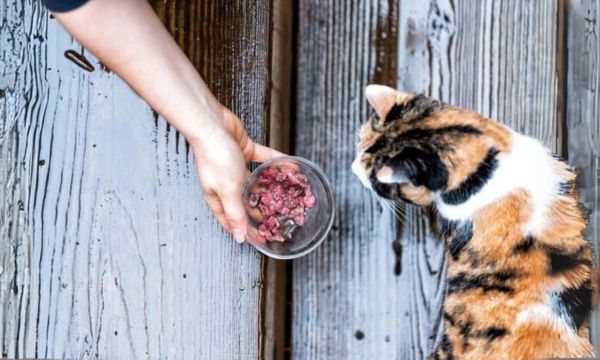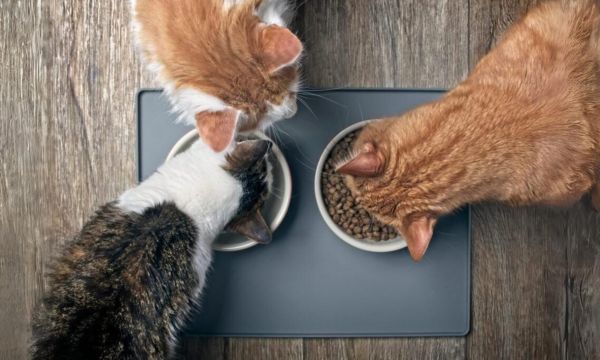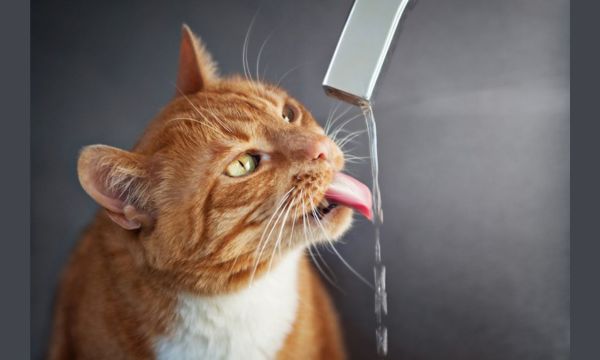As cat owners, we understand the importance of providing the best possible care for our feline friends.
An important aspect of their health that is often overlooked is their diet.
Cats, just like humans, can develop allergies and dietary restrictions that can seriously affect their overall health and quality of life.
In this article, we dive into the world of cat allergies and dietary restrictions to help you find a healthier lifestyle for your furry companion.
Understanding Cat Allergies
Cat allergies can manifest in a variety of ways, from skin irritations to digestive problems. Common allergens in cats include certain proteins, grains and dairy products.
If you notice your cat is scratching excessively, losing hair or suffering from chronic ear infections, this could be a cause of allergies.
Consultation with a veterinarian is essential to identify specific allergens and determine the best course of action.
Identify Dietary Restrictions
Just like humans, cats have dietary restrictions that require special attention. For example, some cats may develop sensitivities to certain ingredients, such as gluten or artificial additives.
In addition, cats with pre-existing medical conditions, such as kidney disease, may require specialized diets to effectively manage their condition.
Regular veterinary checkups and open communication with your vet about your cat’s diet are critical to spotting any dietary restrictions.
Switch to a Healthier Diet
If you suspect your cat has allergies or dietary restrictions, it’s critical to gradually transition them to an appropriate diet. Sudden changes can cause indigestion.
Start by introducing a small portion of the new diet along with existing foods.
Monitor their reactions and gradually increase the portions of the new food while decreasing the portions of the old food.
This approach allows their digestive system to adjust comfortably.
Choose the Right Food
The market offers a variety of cat food options for specific nutritional needs.
High-quality diets with limited ingredients, grain-free options and hypoallergenic formulas are designed to meet the needs of cats with allergies and sensitivities.
When choosing a food for your cat, read the ingredients list carefully and choose a brand that is known for producing well-balanced meals.
The Role of Veterinary Guidance
Consult your veterinarian before making major changes to your cat’s diet. They can perform allergy tests to identify specific allergens and advise on appropriate commercial or prescription diets.
Your vet’s expertise will ensure that your cat’s nutritional needs are met without compromising his health.
Homemade Snacks and Meals
Homemade treats and meals can be an exciting option for cat owners looking to take their pet’s diet to the next level.
Preparing food at home gives you complete control over the ingredients, ensuring that your cat’s dietary restrictions and allergies are carefully considered.
However, it is imperative to work closely with your veterinarian or cat nutritionist to develop a balanced diet that meets your cat’s nutritional needs.
Monitor and Adjust
Once you’ve established the right diet for your cat, it’s critical to monitor its progress. Monitor their energy levels, coat condition and general behavior.
As your cat’s health changes over time, regular visits to the vet may prompt necessary dietary adjustments.
Moisture is Important
Dietary considerations go beyond solid foods. Adequate hydration is just as important to your cat’s health. Cats are known for not drinking enough water, which can lead to urinary problems.
To promote proper hydration, consider including wet cat food in their diet.
You can also provide clean, fresh water in several bowls around the house and explore cat water fountains that many cats find appealing.
Combining a diet that takes into account cats’ allergies and dietary restrictions is a profound concern that can significantly improve their quality of life.
By carefully considering their unique needs, working with a vet, and making a gradual transition, you can provide the best nutrition for your feline companion.
A well-chosen diet not only promotes physical health, but also supports their emotional and mental health.
By adjusting to their reactions, being vigilant about hydration and seeking professional guidance, you can create a path for your beloved feline to live a vibrant and fulfilling life.
Remember that your commitment to their nutrition is an investment in their long-term happiness and vitality.
Frequently Asked Questions
1. What are the most common symptoms of cat allergies?
Cat allergies can manifest as excessive scratching, shedding, chronic ear infections or digestive problems. If you notice these symptoms, it is recommended that you consult a veterinarian for proper diagnosis and treatment.
2. How do I determine my cat’s dietary restrictions?
Identifying dietary restrictions requires careful observation and professional guidance. If your cat shows signs of sensitivity or discomfort after eating, consult your vet.
They can recommend tests and understand your cat’s specific needs.
3. Can I suddenly switch my cat to a new diet?
Sudden dietary changes can cause digestive problems in cats. A gradual transition is recommended by introducing small portions of new foods into the current diet.
This helps their digestive system adjust comfortably.
4. What should be considered when choosing allergic cat food?
When choosing cat foods, look for high-quality products with limited ingredients, hypoallergenic formulas, or grain-free. Read ingredient labels carefully to make sure the food meets your cat’s nutritional needs.
5. Can I prepare homemade food for cats with allergies?
Homemade meals are an option, but it’s essential to work with a veterinarian or cat nutritionist to develop a balanced diet that meets your cat’s nutritional needs and addresses your cat’s allergies.


